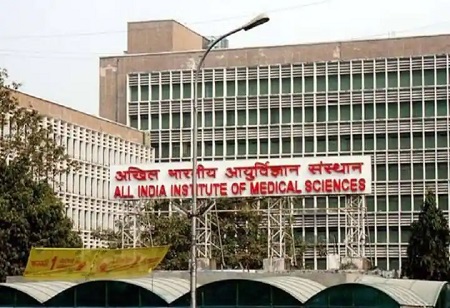India Pharma Outlook Team | Monday, 31 July 2023

According to data obtained under the RTI Act, the AIIMS-Delhi got more than Rs 23 crore in funding from the Centre for the treatment of uncommon diseases during the course of the previous five years. According to data obtained through the Right to Information (RTI) Act, the Centre has given roughly Rs 90 crore to a number of Centres of Excellence (CoE) since 2019 for the treatment of rare diseases.
One of the eight CoEs in India for treating rare diseases, the All India Institute of Medical Sciences in Delhi, or AIIMS, reported receiving Rs 1 crore in 2019, zero in 2020, Rs 4.10 crore in 2021, Rs 7.12 crore in 2023, and Rs 10.93 crore in 2023. According to records kept by the Rare Disease Cell, according to the Department of Health and Family Welfare, the government distributed Rs 1.30 crore in 2019–20, Rs 10 crore in 2020–21, Rs 3.15 crore in 2021–21, Rs 34.99 crore in 2022–23, and Rs 40 crore in 2023–24 (to date). Amit Gupta, a social activist living in Noida, submitted the RTI request. The response read, "Financial assistance up to Rs 50 lakh is provided to the patients suffering from any category of rare diseases for treatment in any of the Centres of Excellence for rare diseases under National Policy for Rare Diseases (NPRD)," according to an amendment to the policy published by this Ministry (Department of Health and Family Welfare) on May 19, 2022.
"In the financial year 2022-23, the financial assistance up to Rs 50 lakh is provided to COEs for treatment of 203 patients suffering from rare diseases," it added. In July 2022, Union Minister of State for Health and Family Welfare Dr Bharati Pravin Pawar informed Lok Sabha that the government launched the National Policy for Rare Diseases (NPRD) in March 2021 for the treatment of rare disease patients.
Under the policy, the rare diseases have been identified and categorised into three groups. Disorders in Group 1 are amenable to one-time curative treatment, while those in Group 2 are diseases requiring long term or lifelong treatment having relatively lower cost of treatment, Pawar said. The minister also said eight CoEs have been identified for diagnosis, prevention, and treatment of rare diseases, while five nidan kendras have been set up for genetic testing and counselling services. In order to receive financial assistance for treatment of rare disease, a patient may approach the nearest CoE, the minister added.